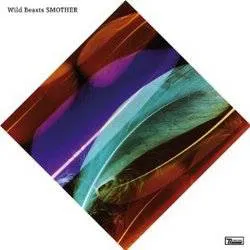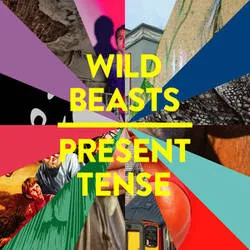News Track By Track: Wild Beasts - Present Tense
Reading too much into a record can often kill the joy of it. Excitement turns to analysis, fandom to a chin stroke. Wild Beasts’ five-star rated ‘Present Tense’ - the year’s outstanding album so far - is on the one hand another fine pop record from the Domino-signed group, arriving on their fourth LP. On the other, it’s a complex, terrifying work, loaded with ideas that attempt to observe and provide an answer to everything.
It’s a record that’s already being labelled directly as a political piece. Hayden Thorpe - speaking to DIY about the album as a whole - dismisses that notion, brilliantly observing that “I can’t marry the ugliness of politics with the escapism of music. To me they come from a different realm.” Still, there’s a sting to this record’s tail. Even if it isn’t something that directly baits bankers or stamps on the superrich, any listener can draw severe conclusions from just a cursory listen.
Instead of this being a standard track-by-track guide, more than anything we spoke to Hayden to clarify exactly what this album is about. He sums up by saying “there was never a blueprint” for ‘Present Tense’, describing the recording space as being defined by the “chaos of being four guys with opposite and conflicting opinions.” Sometimes “they align”, he professes, and that’s largely where the whole record stems from. “Part of why the album’s called ‘Present Tense’ goes down to us discarding something like this the moment it’s down,” he says. “I don’t mean in the sense of disowning it. But your gaze is always looking forward and it’s onto the next thing. Our next step was living within the songs and coming to appreciate them again. We’re always a band that set ourselves limits.”
Wanderlust
It’s a song about us as a band. It’s a statement about our ideals, who we are as people and as a gang. It’s almost a re-imagining of the initial things that threw us together when we were teenagers. We had these grievances, feelings of a power struggle, things we wanted to stomp all over. It’s also a song about realisations on how it’s easy - with whatever you do - to become obsessed with types of achievements. Sometimes you have a rare moment of clarity that makes you realise what nonsense you can get caught up in. I guess above anything it’s about the gift of being able to express in your art, without sounding grandiose. I almost find it a spiritual song - but it’s a spiritual song borne out of the brutalities of living today.
Nature Boy
All of a sudden when you’re growing up, your adult mind realises all the mythologies you’ve been led to aspire to be - this is how I’m a man, this is how I’m powerful, this is how I’m strong - are false, almost grotesque. And that’s quite a realisation in many ways. ‘Nature Boy’ is an illustration of that myth of the audacious male who’s all-conquering. When you’re in a band you build a world for yourself to live in, and sometimes you believe you can live in that skin and become the myth you make. It’s a skin that made me pretty itchy, to be honest.
Mecca
‘Mecca’ was by nature a pop song. It wasn’t by design, but it felt like an injustice not to allow it to bloom into that. It would have been awkward if we didn’t let them spill out. There’s a piano at my dad’s house that most of the songs have emerged from. It’s often housed by me and my brother and one morning I was locked out, and I was desperate to play. I was absolutely furious, kicking down a door. I was in a really foul mood. Eventually I was let in - I went straight for the piano. Sometimes you get the feeling you need to get something done, get it out of the way. That’s how it came about.
Sweet Spot
It went through a hell of a lot of versions, ‘Sweet Spot’. We almost wrote it off. We just couldn’t get it right. The barometer was flinging either from being this Ibiza thing straight back into this song you couldn’t focus on. And we couldn’t get it to level out. Like most moments on the record, when we had half an hour of demo time left we scrapped what we had and started again. Within half an hour the dual guitar line came about. The song itself has been around for a long time. It’s about euthanasia, really. What I think a beautiful pop song should be able to do is take a very difficult subject and make it sound completely weightless; throw it up in the air like it’s a feather. That’s what I wanted ‘Sweet Spot’ to do. This might sound morbid, but the song also refers to how death and sex are from the same creature. It’s the snake’s head and the snake’s tail.
Daughters
It’s a story about how callous we can be. And it then asks questions about our future. I see the song as apocalyptic in a sense. It’s very much tapping into the anxiety of the now; that sense of unknowing and a sense of doom. We know enough today to be aware of where we’re heading - it’s the beginning of the end, if that sounds awful. Our current way of being is unstable. The lyrics “all the pretty children sharpening their blades” is incredibly sinister in that sense.
Pregnant Pause
It’s deliberately supposed to be the morning after the traumatic night from ‘Daughters’. They’re deliberately weighed against each other, because the clarity of ‘Pregnant Pause’ is such a relief after the swamp of the song before. It was a song that I was always self-conscious about. I find it quite an emotional thing. I was always aware it might come off a bit soppy. But I was like, you know what, it’s sincere so I can live with that. It’s largely about turmoil - and this sounds awful - and the disturbance of being away for years, which is where we were at by the end of ‘Smother’’s touring. I remember the last show in Istanbul, we didn’t have another booked for a good six months. There was a sense of finality to that night and I just got incredibly drunk on the local brew in Istanbul before vomiting all the way back to England. I was incredibly lost at one stage in the night, pissing in the street, staggering. The song was borne out of getting home and finding clarity knowing all the things that matter are still in place. All the swings of your ego - from disillusionment to complete triumph, often in the space of a day - don’t affect the people around you. Frankly they couldn’t give a shit. ‘Pregnant Pause’ is about the brief stillness of waiting, then.
A Simple Beautiful Truth
In a way I was wanting to write my own version of Haddaway’s ‘What Is Love’, which to me holds a lot of importance. On a nostalgic level that was the kind of soundscape that as a child I came into. You grow up hearing music in passing and all of a sudden it’s incredibly moving. That’s a song I’ve always held dear. We wrote ‘Mecca’, for instance, during the period where we’d almost discarded entirely the idea of being part of a band. I was listening to detroit techno, thinking the record was going to be far less band-orientated than it actually became in the end.
A Dog’s Life
This album is about the compromise of human nature, and it’s about the powers that be. We’re a little bit more aware of them now. Like most people, I seemed to go through a mid-twenties crisis. You kind of glide through this extended childhood. You pop out the other side at twenty-four, twenty-five and all of a sudden you have to stand for something. I think a lot of the album is about stepping out of that cycle.
Past Perfect
I don’t want to get too grandiose but I think there is a real transitionary point. We’re at the turn of the century. There’s an explosion of change, where the internet has shifted the fabric of human nature. Questions about religion and politics are all veering off in different ways, and we came up with an epic, destructive conclusion. I do think there’s been a second coming as it were of technology screening into the future and it’s just about catching up.
New Life
More than ever we just lived with this record. It wasn’t about the big picture. You’re doing so much you don’t really see the end. This album was about the day to day triumphs. There wasn’t a huge sweeping epiphany where it all fell into line. It was more the small organising of our ideas. That was the difficult task. We were separating ideas that were flimsy and ideas that would be stirring for ourselves in the long run.
Palace
In my mind this isn’t a perfect piece of work. And ‘Palace’ is about acceptance. The closing line is perfect in that it admits that striving for perfection is the wrong cause. If you go for this, you miss all the beauty of the awkward, the ugly and the accidental. There’s an acceptance of the chaos; living with it and accepting it. Early on, we always wanted ‘Palace’ to be the closing track. It has this air of cautious optimism. The line “this is a palace and that was a squat” came from the realisation that I was one of many people that thinks achieving something automatically makes you a happier, better person. There’s a mid twenties realisation that all of this is nonsense and counts for nothing. It’s crushing. I had a realisation that I had everything I wanted, but I was living in a basement flat in Hackney; essentially a wreck. And I was paying a decent amount of rent for that. But there was an acceptance that I wouldn’t change that for the world. I’ve lived in far prettier flats and they felt like squats. And this basement flat felt like a palace at that point.
Wild Beasts’ ‘Present Tense’ is out now on Domino. Read the DIY Weekly cover feature here and the rest of the current issue online or on iPad.
Read More
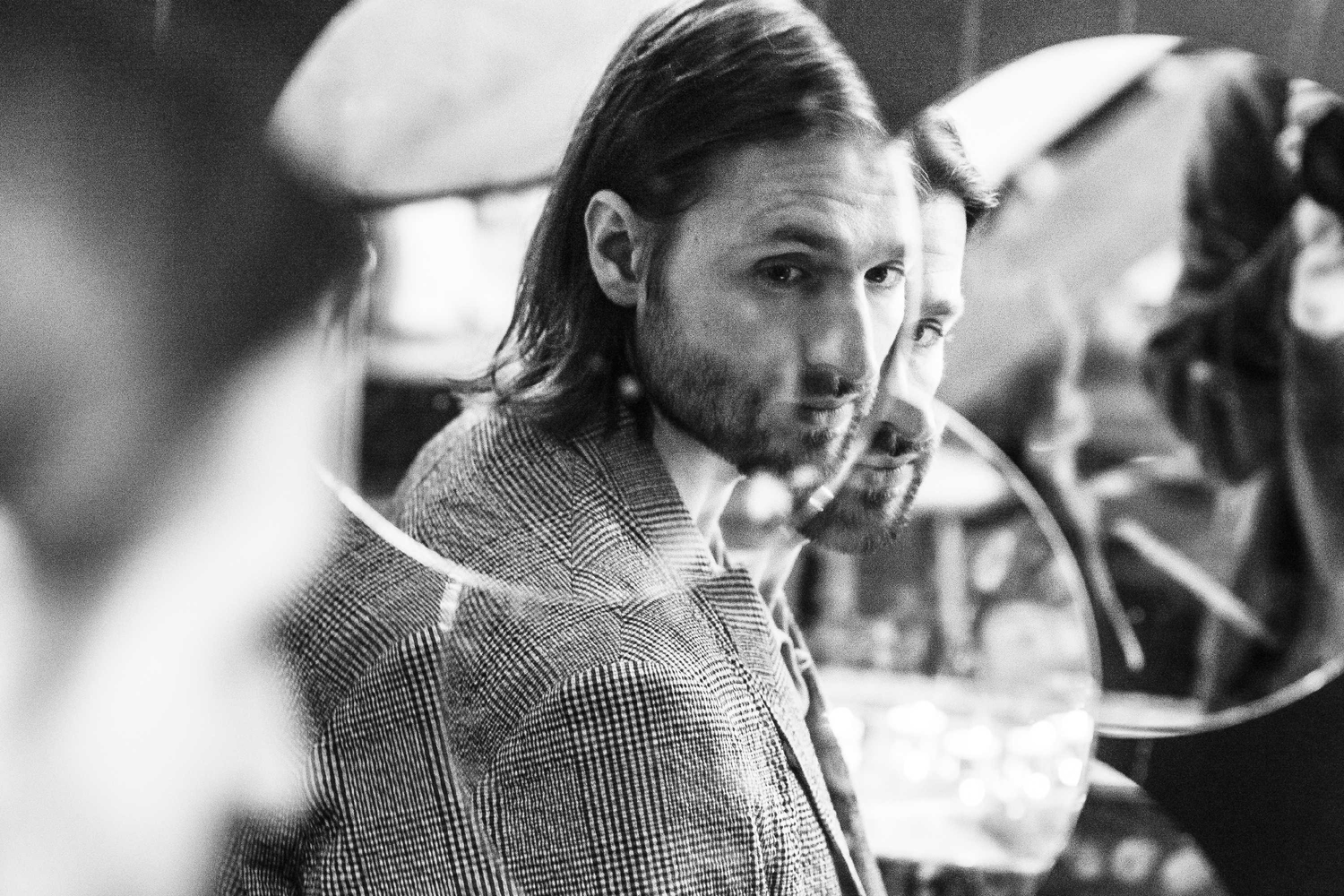
Suspending the madness: Hayden Thorpe
On his debut solo album 'Diviner', the former Wild Beasts frontman finds spiritual freedom in surrendering yourself to the universe, and the power of carving out new beginnings.
12th April 2019, 12:05pm

Hayden Thorpe fronts the April issue of DIY
Also featuring Stella Donnelly, Foxygen, PUP, Whitney and more, the new mag is out on Friday (12th April).
9th April 2019, 12:00am
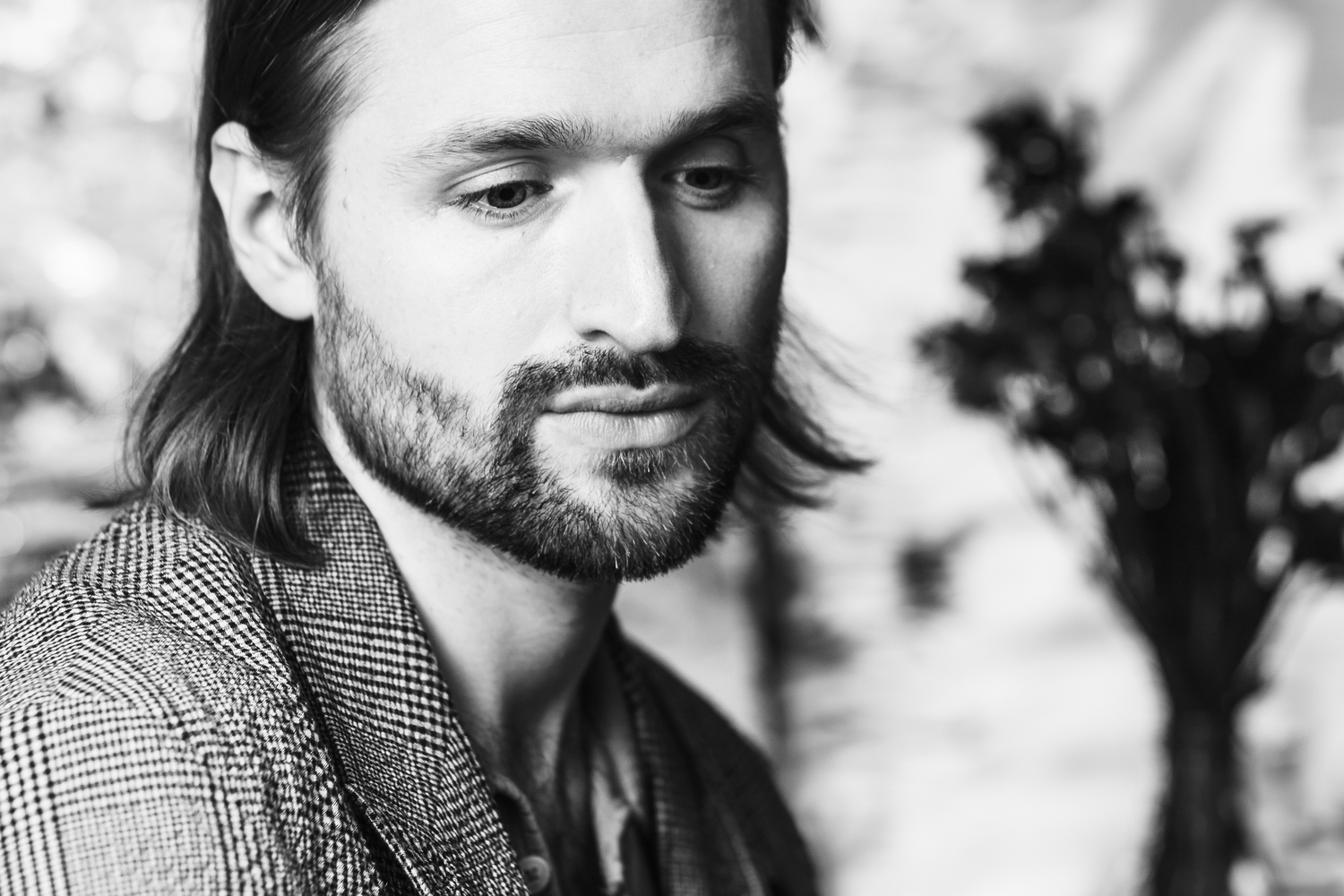
Hayden Thorpe: “At times it felt like trying to land a jumbo jet without the qualifications”
The former Wild Beasts frontman talks new beginnings in the April issue of DIY - preview our new cover feature.
9th April 2019, 12:00am
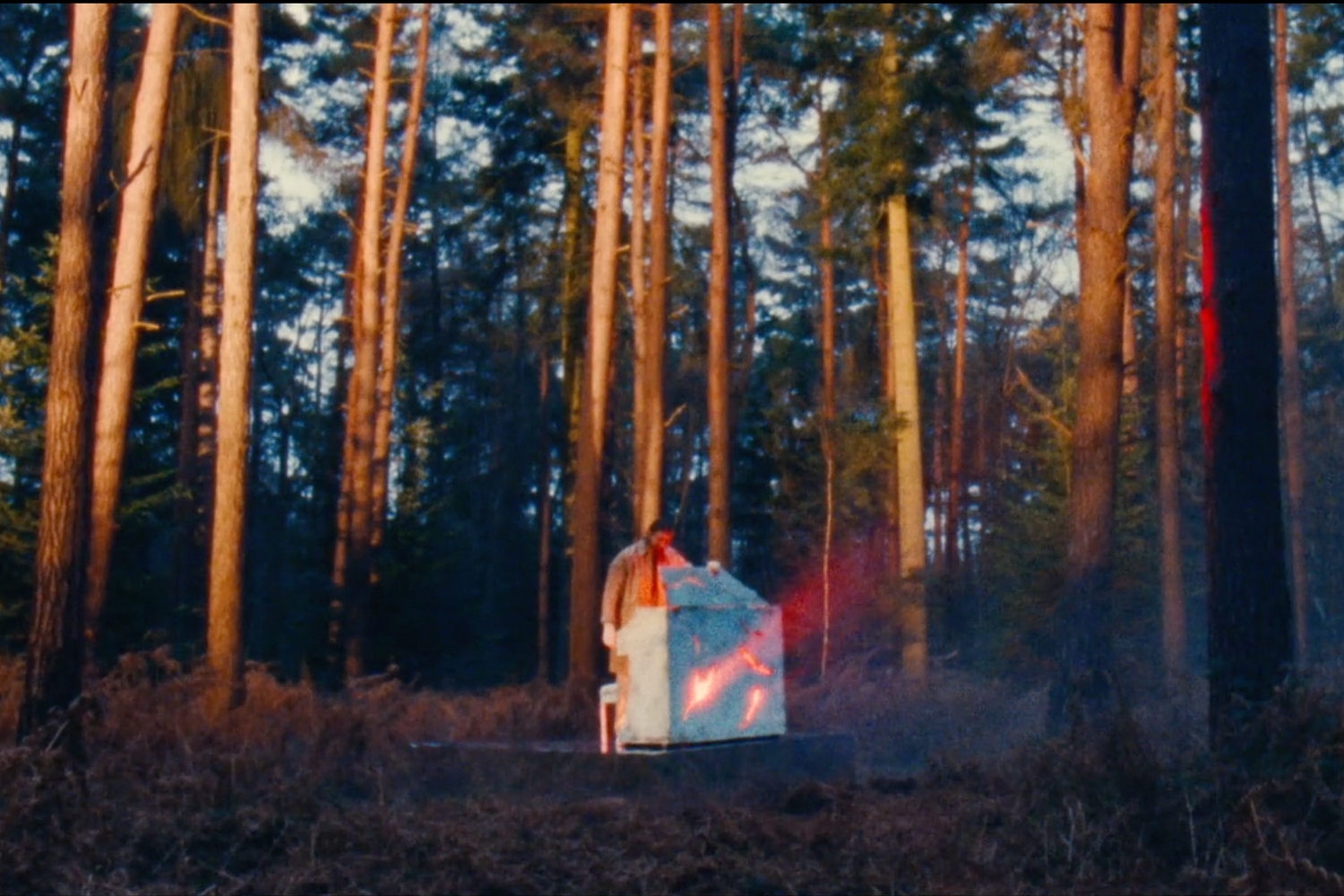
Former Wild Beasts frontman Hayden Thorpe returns with debut solo track ‘Diviner’
The tender offering comes along with a gorgeous new video.
21st February 2019, 12:00am
Featuring SOFT PLAY, Corinne Bailey Rae, 86TVs, English Teacher and more!
